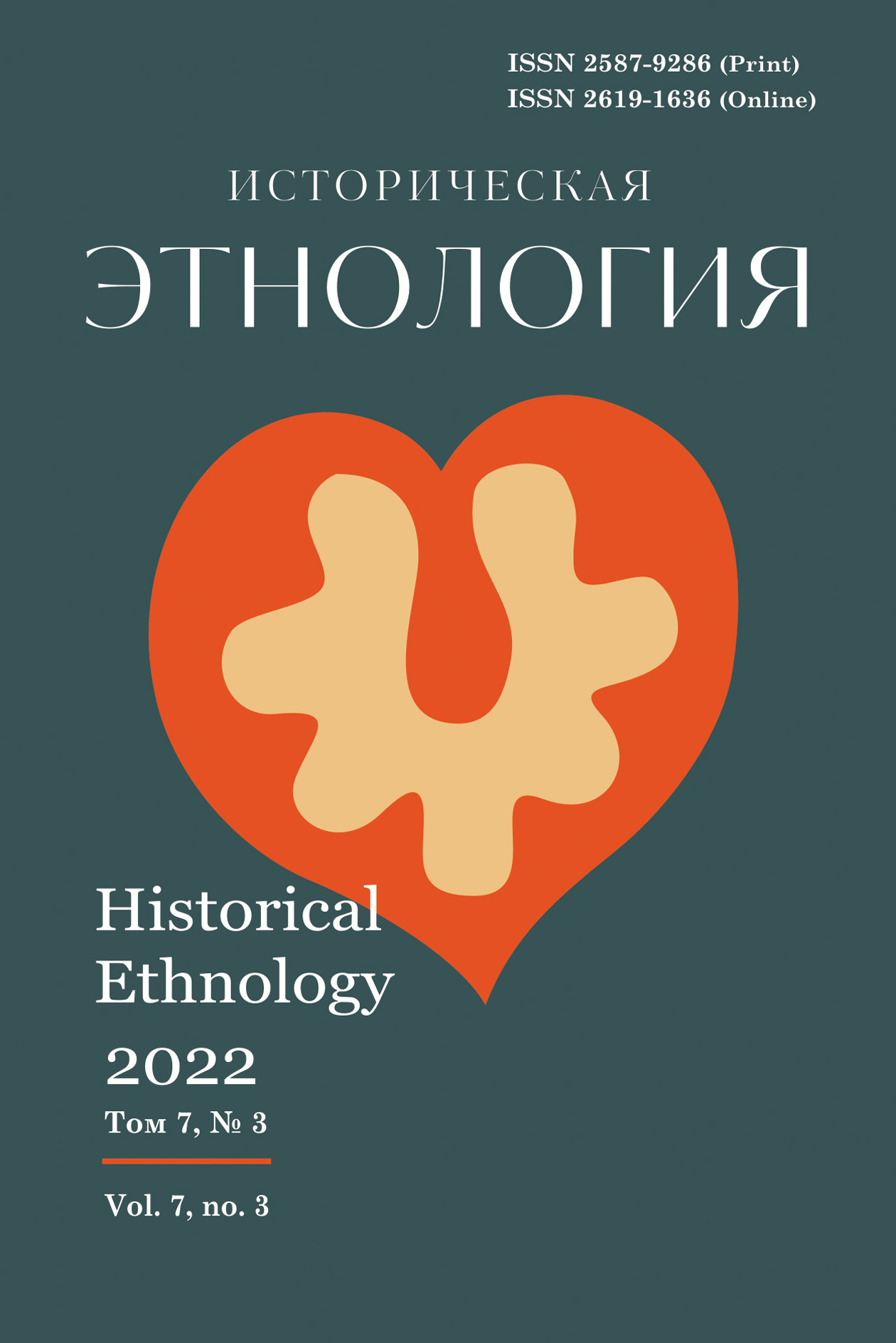
Main menu / 2022, vol.7, no.3 / Khozhaniyazova G.M.
The tradition of mutual assistance kömek in the agrarian culture of the Karakalpaks in an environmental crisis Khozhaniyazova G.M.
388-397 p. doi.org: https://doi.org/10.22378/he.2022-7-3.388-397 The article analyzes the tradition of mutual assistance of the Karakalpaks in rural areas relations in the conditions of the ecological crisis. Mutual assistance is of great importance in the life of the Karakalpak people and is firmly confirmed among the people as a social institution. The mutual assistance program was formed by different nations under different names, and in Karakalpakstan this program was preserved under the name “komek” which is translated as “help”. The article reveals the difficulties in the relations of Karakalpak agriculture, irrigation, as well as the role of the social institution of mutual assistance in social relations based on a market economy in the current conditions of the ecological crisis. On the basis of field research and other data carried out in the Karauzyak, Shumanay and Khodjely regions of the Republic, the types of mutual assistance in agricultural relations and their functions in the conditions of the ecological crisis, their transformation, as well as the stages of modernization of the types of mutual assistance have been presented and specified. In most cases, from the beginning of the sowing period in agriculture, attention was paid to the traditions of helping during the harvest, mutual assistance in watering, dividing it into groups, and focusing on its functions. The article also discusses the importance of mutual assistance in the agricultural relations of the Karakalpak people in the context of the current environmental crisis and the role of such mutual assistance in the formation of ecological culture. In addition, the relevance of the current work on mutual assistance based on rural, regional and state programmes has been studied to ensure the environmental sustainability of the region as a result of the development of ecological consciousness. Keywords: Karakalpaks, support, social institution, farm works, environmental crisis, mutual assistance For citation: Khozhaniyazova G.M. Traditsiya vzaimopomoshchi kömek v agrarnoy kul'ture karakalpakov v usloviyakh ekologicheskogo krizisa [The tradition of mutual assistance kömek in the agrarian culture of the Karakalpaks in an environmental crisis]. Istoricheskaya etnologiya, 2022, vol. 7, no. 3, pp. 388–397. https://doi.org/10.22378/he.2022-7-3.388-397 (In Russian)
REFERENCES Abdullaev R.B., Navruzov M.K. Problemy ekologicheskogo krizisa i zdorov’ya v Khorezmskoy oblasti [Problems of the Ecological Crisis and Health in the Khorezm Province]. Ecological Vestnik, 2012, no. 7, pp. 31–33. (In Russian) About the author: Gulshana M. Khozhaniyazova, Basic Doctoral Student at the Department of Ethnography, Karakalpak Research Institute for the Humanities, Karakalpak Branch of the Uzbekistan Academy of Sciences (179A, Amir Temur St., Nukus 230100 Karakalpakstan, Uzbekistan); kk_gumanitar@mail.ru
Received June 15, 2022 Accepted for publication August 1, 2022 Published Online December 15, 2022 |
Istoricheskaya etnologiya Historical Ethnology
Scientific journal







